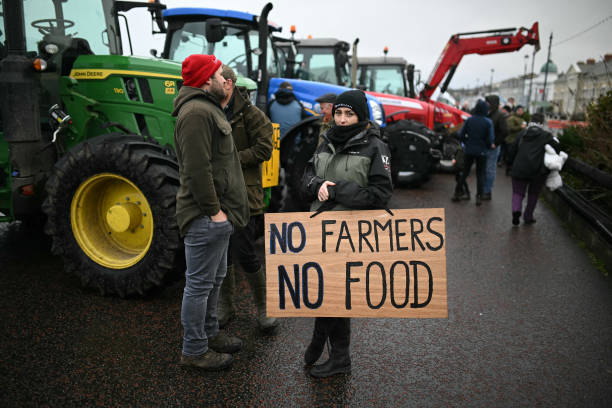In recent weeks, UK farmers have voiced growing discontent over the government’s proposed inheritance tax changes, with many claiming the new policy will further burden an already struggling industry.
The change, announced in the recent budget, aims to apply inheritance tax to farmland valued over £1 million, a move that threatens the tradition of passing family farms down without tax penalties.
For decades, the Agricultural Property Relief (APR) scheme protected farm assets from inheritance tax to support food security and sustain family-run operations.
This new tax is just the latest in a series of challenges faced by farmers in the post-Brexit era, from trade deal disappointments to skyrocketing input costs for fuel and fertilizer.
Adding to their frustrations, extreme weather events tied to climate change have ruined crops, while new labor shortages and shifts in environmental policy have created more obstacles.

The National Farmers’ Union (NFU) has called for a reversal of the inheritance tax changes and a more balanced approach to policy.
Farmers are urging the government to ensure that food imports meet the same high standards as domestic products, as they struggle with unfair pricing from supermarkets profiting at the expense of farmers’ margins.
The NFU’s upcoming protest in Westminster aims to rally support for a fairer system, as farmers threaten more disruptive actions to raise awareness of their plight.
Despite the growing tension, some within the farming community, like organic farmer Guy Singh-Watson, believe the loudest objections to the inheritance tax change come from wealthy landowners exploiting tax loopholes.
Others argue that the government should target larger agribusinesses and supermarkets, which continue to reap high profits while farmers face mounting financial pressures.
As the debate continues, many farmers are calling for a system that supports genuine agricultural businesses and maintains the long-term sustainability of UK farming.

